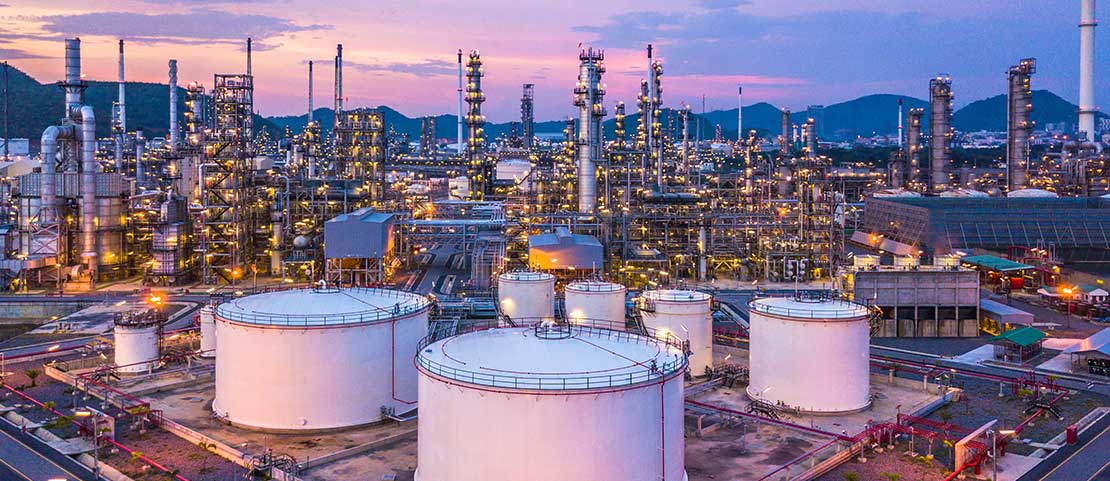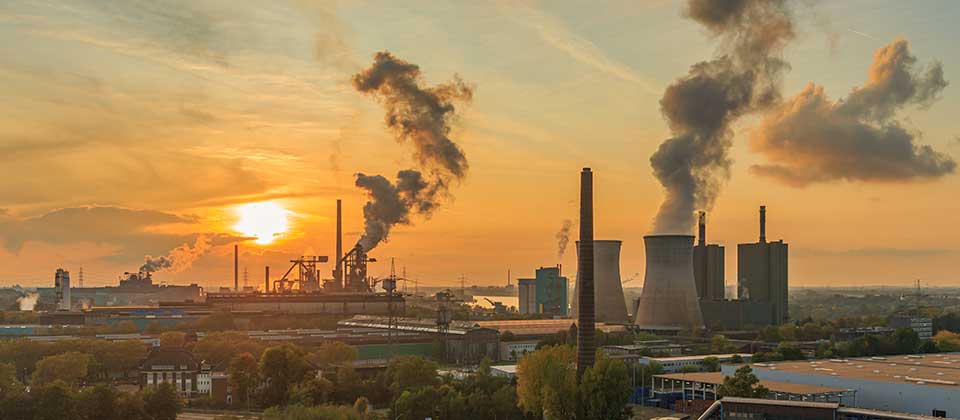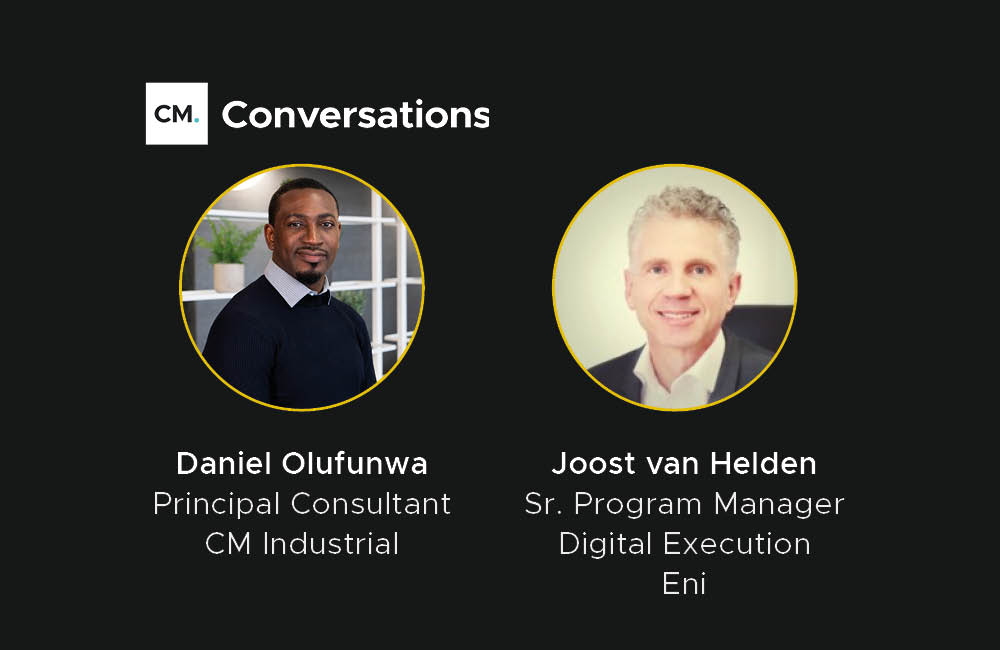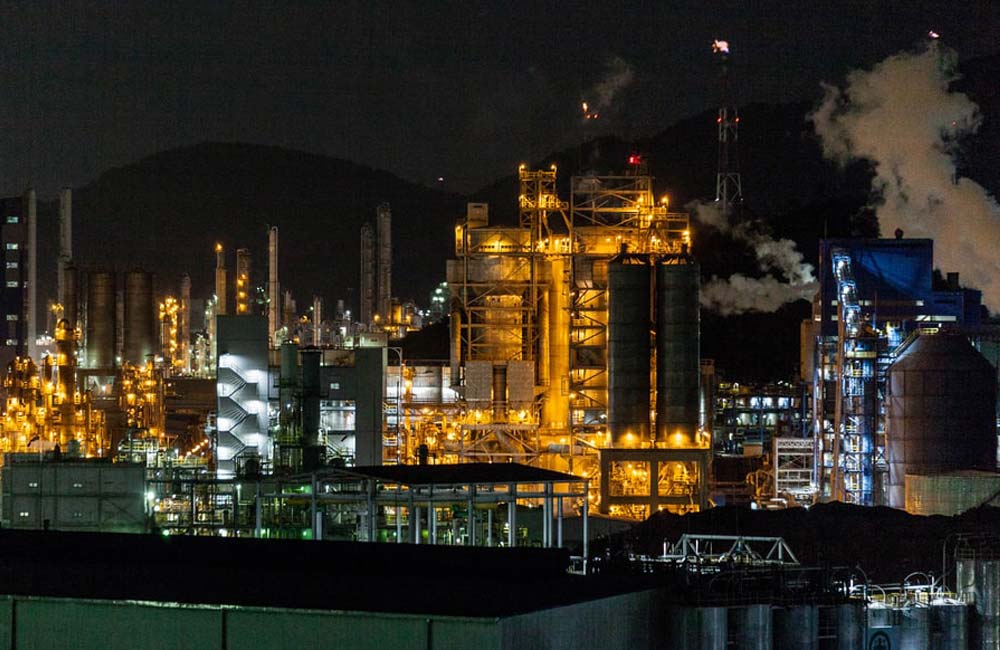

What is CM Industrial Looking Forward to in 2021?
It's a new year that's brimming with opportunity.
We can't wait to continue partnering with you all, whether it be on recruitment projects or creating content, searching together to find the future in 2021.
And what a 2021 it promises to be! With a vaccine on the way, there's light at the end of the tunnel for us all. There’s optimism throughout all the markets we serve, here’s what some of our most senior CM Industrial consultants are looking forward to.
Oliver Davies, Associate Director
Chemicals
After a challenging year with concerns around pricing, raw materials and capacity intensified by the global pandemic; 2021 feels like it could be the start of a new chapter in the growth and development of the chemicals industry.
From speaking to multiple experts and leading industry professionals, I think the next stage of development will prioritise asset optimisation (digitalisation), efficiency and cost management.
There will also continue to be a shift to the use of more sustainable materials. Already, we’ve seen a stark rise in water-based resins rather than solvents, bio-based feedstocks rather than petroleum-based, and different recycling mechanisms for plastics of all varieties. This is something we discussed in a recent CM Conversations episode with Biofabrik: “Politicians need to approve chemical recycling if they're serious about sustainability."
Three big applications for growth in 2021 will be electronics, healthcare and construction (especially retail/DIY markets). The automotive market should recover at ~20% in 2021, which will have a big impact because this was one of the hardest hit markets last year.
Demand will increase across all markets and raw material price volatility should not be any more of a factor than previously.
A return to high levels of M&A in chemicals is likely in 2021 too, especially in agrochemicals, coatings and plastics. Many companies are looking to add to their green credentials and often this takes the form of inorganic growth.
You can see more chemicals content on my consultant page. Please email me if you’d like to chat about my predictions here, your hiring plans or advancing your own career in chemicals. My email is Oliver.Davies@industrial-cm.com.
Lyle King, Business Manager
Water
.jpg)
Everyone’s talking about digitalisation.
I think it’s very apparent that customers from all corners of the water industry are beginning to adapt technology in the way they use, manage and treat water. This has been accelerated by the impacts of COVID-19, with the inability to physically have a presence on site.
Data collection and data analytics can (and no doubt will) play a huge part in how the water industry moves forward. Digital systems can offer a range of savings from reduced energy consumption, reduced carbon emissions and maintenance savings through loss of downtime.
Going digital could lead to a gap in the talent market, which may mean that companies look outside of water and particularly to the tech markets to bring in the necessary talent.
All of the above was discussed in the two webinars I hosted last year, featuring experts from the industrial and municipal water spaces. You can access all my water content via my consultant page.
Please give me an email at Lyle.King@industrial-cm.com if you’d like to speak about the water industry, your hiring plans or advancing your own career this year.
Aaron Pearce, Principal Consultant
Logistics
The world is undergoing the biggest mass vaccination in its history. For this to be a success, it needs the COVID-19 vaccines to be distributed all over the world.
We’re not far into 2021 and it’s already been fascinating to see logistics service providers that are equipped and certified to move pharma goods hurry through approvals to distribute the vaccines, as well as put their storage and distribution channels in place.
While the COVID-19 vaccine distribution is the top story right now, I’m also excited to see how digitalisation and supply chain visibility develops throughout the industry. This will be a focus for a number of companies this year.
COVID-19 has shone a light on certain industry challenges, for example, broken supply chains and a lack of visibility and granularity of detail available in existing operations. But these issues can be solved.
We’re increasingly seeing a lot of ground-up businesses developing software and tools to provide insights, visibility, booking platforms, track and trace products, demand planning and supply chain predictability, rate management and carrier management – all being in one cohesive and logical dashboard. The challenge is cleaning up the data, getting everyone bought in to the ethos of digitisation and visibility and then cleanly implementing the tools.
You can see more logistics content on my consultant page and please check out my LinkedIn where I’ve been posting industry news updates every Friday.
If you’d like to chat about my 2021 predictions, your hiring plans or advancing your own career in logistics; please email Aaron.Pearce@industrial-cm.com.
Ben Robinson, Director
Mining

Thanks to a wealth of new technologies that have entered the market, mining is getting more automated. This has been happening for a few years, improving efficiency and safety throughout the industry.
However, development of autonomous solutions has further accelerated to combat the challenges of COVID-19. Many miners have adopted autonomous solutions ahead of schedule to lower costs and create safer and cleaner mines - so more can be done with fewer people. I wrote about this recently in my article “4 Ways Mining is Changing in 2021.”
There is no limit to the impact automation and digitalisation has on a mine site, from automated machinery to driver monitoring system software and data centres. So, to pick individual advancements is tricky. Here’s what the readers of Mining Magazine voted for as the standout technologies of late.
There’s also been advances in how the industry uses data and digital twinning. Australia's big three iron-ore miners all have ‘digital twins’, or big city control centres to let them manage parts of their operations from hundreds of kilometres away.
These sites are growing more common, collecting data to harness artificial intelligence (AI) for modelling and designing blast timing, among other things - optimising the work that’s done on-site.
As automation and digitalisation grows within the industry, so does the ability to manage remote mine sites. This is unlikely to take off and become widespread in 2021 because of challenges for this level of technology to reach remote sites in areas like Africa, Mongolia or Chile.
There are other difficulties that must be overcome too. For example, there’s still work to be done on the interoperability between different types of machines and software to ensure a harmonious end-to-end mining lifecycle.
This modern, digital, automated practice of mining is a serious advancement on the pickaxes and railway haulers of old. It requires a host of new, technical skills. In 2020, I worked on a number of roles for data engineers and expect this to continue this year.
Please give me an email at Ben.Robinson@industrial-cm.com if you’d like to speak about the mining industry, your hiring plans or advancing your own career this year.
Jamie Sheard, Business Manager
Materials Handling
The materials handling space is always innovating and adapting each year - whether it be a shift in material focus which OEMs and service providers look to capitalise on, or new innovations improving existing solutions.
2021 will be no different, with digitalisation continuing to advance the way that companies work.
COVID-19 has forced our industry to press the fast-forward button when it comes to working digitally. Travel restrictions have meant that project managers, engineers and staff in general couldn’t visit different sites. That meant many tasks had to be done a different way.
I would argue that the shift toward digitalisation is the biggest change our industry has experienced for a very long time - especially in terms of the way operations are run. Even training of installed equipment (such as a ship unloader or a stacker reclaimer system) which has always typically been done in person, now takes place online in detailed and complex sessions.
From conversations I’ve had across the market, it appears that these digital adaptations and new methods have mostly resulted in successful deliveries and satisfied customers.
In addition, thanks to the advantages of digitalisation, companies have become more environmentally friendly. This will continue in 2021 with reduced travel times limiting the number of emissions produced by the industry and saving companies money in the process too.
What will be interesting this year is whether companies continue to operate with such an onus on digital platforms when the global pandemic is over. The biggest driver here is that customers (end users) have been understanding and allowed these tasks to be conducted digitally, so my main question is whether they will have the same level of understanding when global travel resumes. Will they allow delivery, commissioning and training tasks etc. to be completed digitally or outsourced further? Will increased digital collaboration continue, or will we simply revert back to the same old way as before?
The key in my eyes will be whether these new digital methods prove to be and are perceived to be more effective, rather than just a compromised alternative. One thing is for sure, employees going back to a 70-80% travel schedule will experience a real shock to the system. So, will this be something people are no longer willing to endure? Will companies adapt to offer a value-add digital package? And will this make it easier for them to attract and retain staff due to a more flexible and less travel intensive work schedule? Let’s wait and see how our market reacts and how 2021 unfolds.
If you’d like to chat about my 2021 predictions, your hiring plans or advancing your own career in logistics; please email Jamie.Sheard@industrial-cm.com.
You can see more of my content via my consultant page.
We hope you found what our consultants had to say interesting. If you'd like to partner with CM Industrial on content, talk to us about your hiring plans or your own career; please get in touch.
CM Industrial serve a number of markets throughout the industrial sector and are by no means limited to the ones spoken about in this article. Find the consultant relevant to you on our Meet the Team page and browse our topics to find content the matters to you and your market.
Recommended.

Embedding Digitalisation For A Sustainable Chemical Industry.
How can embedded digitalisation create a more efficient and sustainable chemical industry? Head of Global Digitalisation at ASK Chemicals to find out.

Is this the Chemical Industry's Solution to Reducing CO2 Emissions?
How can the chemical industry create a sustainable future by helping reduce CO2 emissions? Leading companies and start-ups alike are forging a path for change.

How to Implement Digitalisation & Operational Excellence.
In this podcast, we speak to Joost van Helden, who's a Senior Program Manager of Digital Execution at Eni. We discuss the implementation process for digitalisation and how companies can go about achieving operational excellence. Click to listen.

Why Operational Excellence is Everything Now.
The past 12 months has changed everything and renewed interest in operational excellence as chemicals companies continue to make improvements in safety, reliability, sustainability and cost of operations. Click to find out more.
.jpg)


Comments.